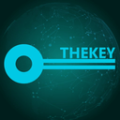

THEKEY (TKY) Price and Reviews
Country:
International
Launched:
2018
Site:
www.thekey.vip
Market cap:
$ 11,562,660.22559
Supply:
10,000,000,000.0
Price (USD):
$ 0.12
Volume 24h:
$ 0.0
Change 24h:
3.61%



